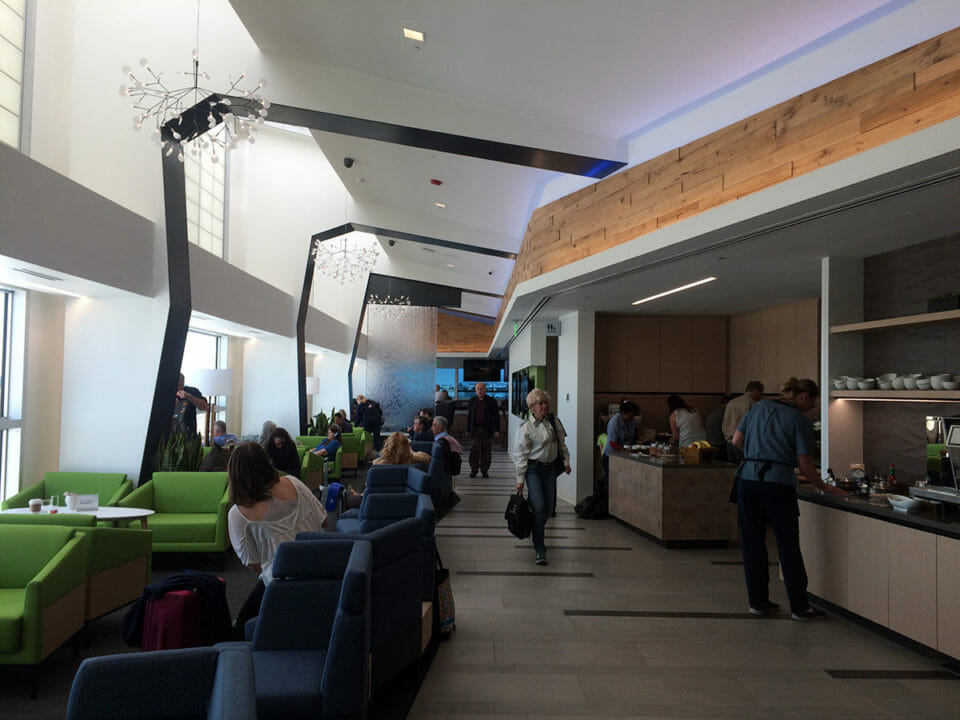One Mile at a Time was quick to announce yesterday that Alaska Airlines has resumed admitting guests into its lounges if you’re a Priority Pass member. If you have a Priority Pass membership through a credit card like the Amex Platinum Card, Chase Sapphire Reserve, or Citi Prestige, then you can bring in up to two guests with you to the Alaska Lounge. This is great news and a sign that temporary capacity issues have been alleviated.

If you’ll recall, earlier this year Alaska Airlines started putting up signs to block all Priority Pass members when the lounge was near capacity and later implemented a blanket ban on guests of those members, even when capacity was not an issue. (The guest ban only applied to Seattle, Portland, and Los Angeles — not Anchorage.)
The reasoning was simple: Priority Pass is only intended to address excess capacity, letting Alaska Airlines earn some extra revenue when the lounge is empty. The program doesn’t pay anything like the revenue that Alaska earns from one-day passes, and of course people who buy annual memberships deserve not to be turned away. Alaska also grants complimentary access to paying first-class customers who travel with Alaska Airlines or Virgin America. That means Priority Pass is the first to suffer when lounges get full.
Alaska has expanded with new routes, the acquisition of Virgin America, and general growth in air travel at their Seattle hub. The addition of the Centurion Studio in Seattle and the launch of the Chase Sapphire Reserve may also have encouraged more people to sign up for cards that grant Priority Pass memberships. Simply put, demand outstripped supply.
But now they’ve gone from one lounge to three in Seattle, and two new alternatives for Priority Pass members in Portland have created other outlets for people interested in using their card benefits. Alaska Airlines still reserves the right to turn away Priority Pass members when lounges get full. However, I expect that this will be less common. It’s certainly encouraging that guests will again be permitted — at least in some cases — and not banned outright.
